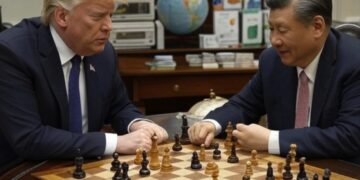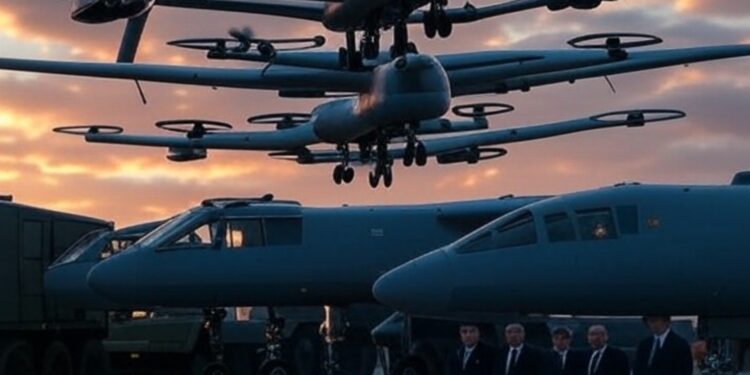In a recent post on social media platform X, retired U.S. Army Lieutenant General Michael Flynn expressed strong concerns over Ukraine’s reported drone attack on Russian nuclear-capable bombers, highlighting significant geopolitical implications. The attack, dubbed “Operation Spiderweb,” targeted strategic airfields deep inside Russia, including the Belaya base in Siberia and Olenya base in Murmansk, destroying an estimated 40 aircraft, including Tu-95 “Bear,” Tu-160 “Blackjack,” and Tu-22M3 “Backfire” bombers. These strikes, executed on June 1, 2025, mark a significant escalation in the Russia-Ukraine conflict, with Ukraine’s Security Service (SBU) claiming damages worth $7 billion.
General Flynn Comments on Ukraine’s Attack on Russian Nuclear-Capable Bombers
Flynn criticized Ukrainian President Volodymyr Zelenskyy for allegedly authorizing the strikes without informing U.S. President Donald Trump, calling it a “geopolitical insult and a warning sign.” He suggested that the lack of coordination could shift the U.S.-Ukraine relationship from allies with coordination issues to “co-belligerents flying blind.” Flynn also referenced the recent visit of Senators Lindsey Graham and Richard Blumenthal to Ukraine, noting that the timing of the attack could imply U.S. sanctioning, though he expressed doubt about their involvement, stating, “These two don’t have the sense or common sense to pull something like this off.”
Highlighting the tactical aspect, Flynn noted that the targeted bombers were likely exposed due to nuclear treaty obligations, making them vulnerable to Ukraine’s innovative use of first-person-view (FPV) drones smuggled into Russia and launched from trucks. He warned that similar tactics could threaten U.S. strategic bombers, urging the development of new defensive measures against inexpensive drones and explosives. “Very costly U.S. Strategic Bombers can be taken out in the same way by anyone with access to inexpensive drones, delivery trucks, explosives, and a bit of technical knowledge,” Flynn stated.
Flynn emphasized the broader implications, predicting a Russian response and describing the attack as “brash” rather than bold. He cautioned that Ukraine’s short-term tactical success could lead to a “long-term loss” for global stability, particularly as peace talks loom in Istanbul. Despite the escalating tensions, Flynn believes solutions for peace remain possible, though he warned that “time becomes an enemy” as options narrow.
The attack has sparked varied reactions. Ukrainian officials, including Zelenskyy, have hailed it as a historic blow to Russia’s strategic capabilities, while Russian sources, including pro-Kremlin analysts, have called for a nuclear response, citing Russia’s doctrine allowing nuclear retaliation for attacks on critical infrastructure. The operation’s timing, just before scheduled peace talks, underscores its potential to reshape the conflict’s trajectory.
As the world watches Russia’s next move, Flynn’s comments highlight the delicate balance of escalation and diplomacy, urging stakeholders to consider the global ramifications of such actions.









































